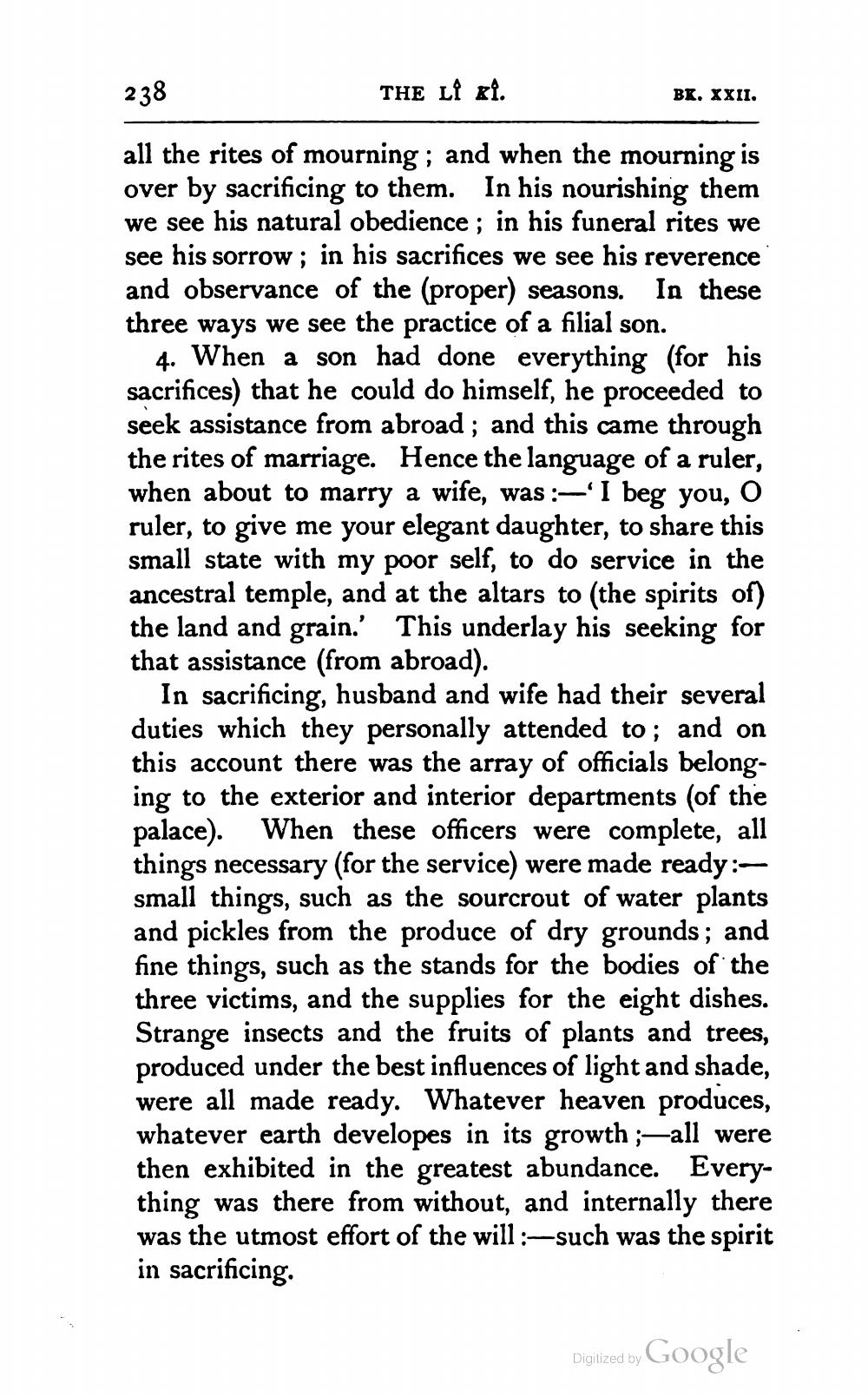________________
238
THE LI Kİ.
all the rites of mourning; and when the mourning is over by sacrificing to them. In his nourishing them we see his natural obedience; in his funeral rites we see his sorrow; in his sacrifices we see his reverence and observance of the (proper) seasons. In these three ways we see the practice of a filial son.
4. When a son had done everything (for his sacrifices) that he could do himself, he proceeded to seek assistance from abroad; and this came through the rites of marriage. Hence the language of a ruler, when about to marry a wife, was:-'I beg you, O ruler, to give me your elegant daughter, to share this small state with my poor self, to do service in the ancestral temple, and at the altars to (the spirits of) the land and grain.' This underlay his seeking for that assistance (from abroad).
BK. XXII.
In sacrificing, husband and wife had their several duties which they personally attended to; and on this account there was the array of officials belonging to the exterior and interior departments (of the palace). When these officers were complete, all things necessary (for the service) were made ready:small things, such as the sourcrout of water plants and pickles from the produce of dry grounds; and fine things, such as the stands for the bodies of the three victims, and the supplies for the eight dishes. Strange insects and the fruits of plants and trees, produced under the best influences of light and shade, were all made ready. Whatever heaven produces, whatever earth developes in its growth;-all were then exhibited in the greatest abundance. Everything was there from without, and internally there was the utmost effort of the will:-such was the spirit in sacrificing.
Digitized by
-
Google




